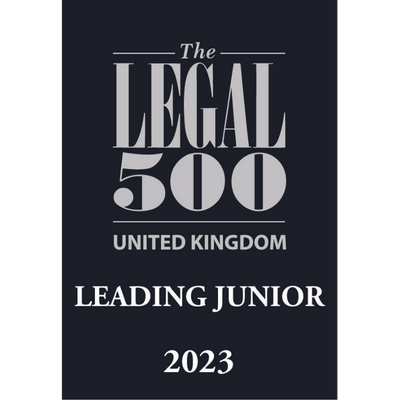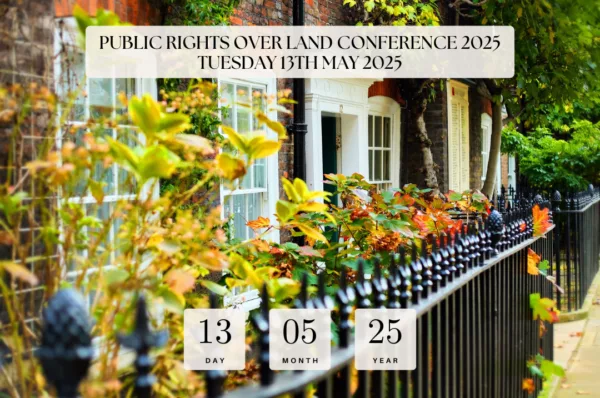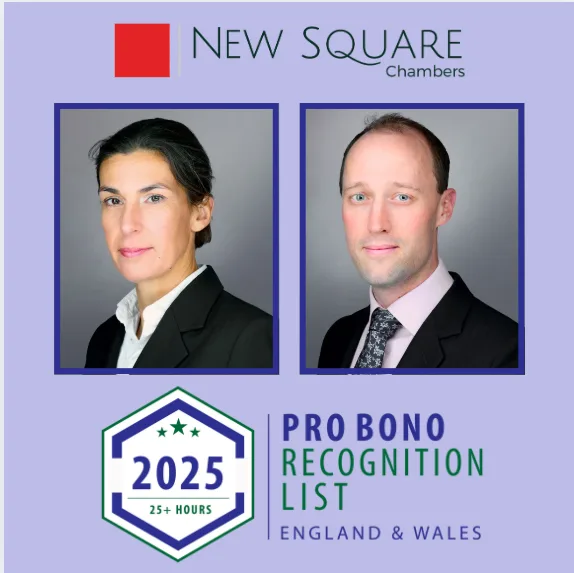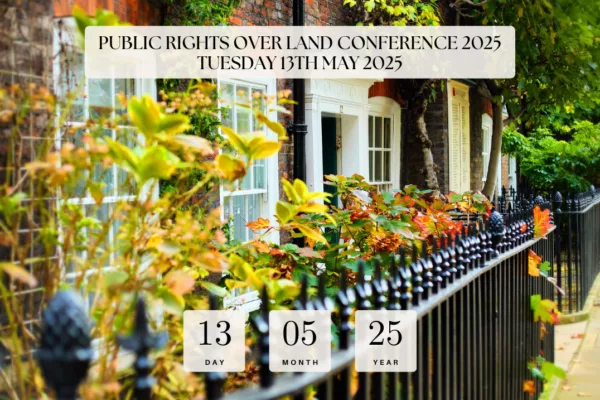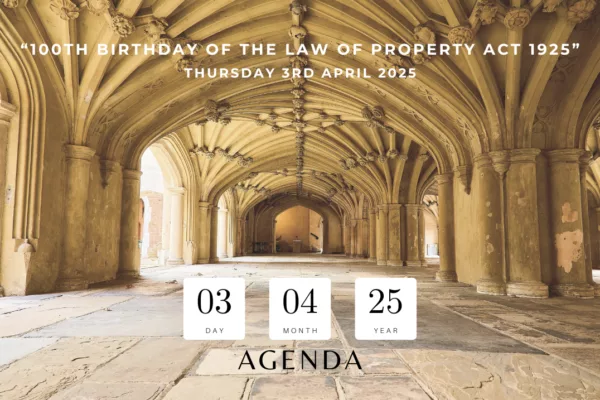Overview
Amy Berry is well known and well liked amongst her peers for her succession work often on behalf or involving those who have lost capacity. Amy thinks laterally, she has to as she is dyslexic, and her work is bespoken and forward thinking. Amy has had a varied life and she deploys her skills at people management, farming, property development, acting as a trustee and caring/working with the disabled to create a real niche practice with a large following. Amy is in great demand and has an unbelievable ability to manage and resolve the most complex of cases and people; she is a survivor and ensures all her clients (both professional and lay) survive too. All those years playing chess and cards make her a great strategist; she can and does out manoeuvre her peers and will guide you out of tricky situations while retaining composure and charm.
Her work and practice sit largely within traditional chancery work including trusts, wills, estates, equitable remedies, court of protection, tax, property, farming, building, construction, planning, inheritance and related professional negligence. She is regularly involved in large and complex claims and mediations. But is equally happy dealing with anyone and everyone. Amy enjoys her work and gets a sense of pride in ensuring her work helps society grieve after what are usually the most harrowing of experiences. Amy has an uncanny ability to work with anyone and often her clients are those that solicitors find the most difficult to deal with. She is comfortable and at ease in any court room or mediation whether in person or remote.
She has a lovely manner that glows, giving a sense of calm and confidence to her clients but strikes fear in those she is about to cross examine. She is often instructed by her opposing solicitors after they see her in court or after mediations (and wishing they had instructed her first). Above all Amy is succinct, kind, considerate and patient. She will not faulter on her integrity, honesty or candor. She can be firm when required. And always adds value to a legal team.
Legal 500 tier 1 (leading junior) in Chancery, Probate and Tax on Western Circuit
“Amy is practical, knowledgeable, gets to the crux of the problem quickly and has an excellent client manner. Her advice is clear, robust and pragmatic.” – 2023
“…Amy Berry, a Chancery specialist with particular experience in relation to protected parties who are the beneficiaries of estates and trusts.” – 2021
“A passionate advocate who will go the extra mile for clients.” – 2020
“Very experienced in Inheritance Act claims.” – 2019
Amy is an editor, despite her dyslexia, of Williams, Mortimer and Sunnucks and Drafting Trusts and Will Trusts.
Trusts, Wills & Estates
Most of Amy’s practice consists of litigation in the private client area, including challenges to wills and trusts, administration of estates, probate, inheritance, court of protection, professional negligence, farming and trust of land disputes. Amy’s acquired life skills from farming, property development, acting as a trustee and working/caring for the disabled enhance her practice; and give her the edge as against her peers.
Amy can pick out the legal and factual points that can win and lose cases, she can explain the points that others have missed and puts clients at ease because she has amassed a wide variety of life skills lived and learnt. She is so easy to deal with and she is responsive to emails, MS Teams and her mobile (other than when her children take priority).
Amy has advised on numerous issues over the last 20 years including:
- Non-contentious applications in the probate court
- Variation of Trusts Act applications
- Approved compromises,
- Drafted trust and will clauses,
- Removed trustees and executors,
- Argued numerous cost points including discontinuance,
- Proprietary estoppel
- Cohabitation and co-ownership disputes
- Capacity
- Undue Influence
- Vitiating factors and setting aside transactions
- Loans & gifts
- S.9 Validity (Will)
- Knowledge and Approval
- Resulting & Constructive Trusts
- Construction and rectification of wills, deeds and trusts
- Boundary disputes, easements,
- Planning and overages
- Property
- Professional Negligence
- Building Disputes
- Construction
- Farming
- Tax
- Court of Protection property and affairs
- Deputy and power of attorney removal and disputes
- Statutory Wills
- Tax planning for those that lack capacity
The list goes on; some specific cases are set out below.
Amy loves her work and is keen to expand her International and EU Succession Regulation work because her immediate family is in Spain, France and Abu Dhabi and also because society is becoming global and soon everyone will own assets in more than one jurisdiction or habitually reside in a place where their assets are not.
Kaur v Bolina & Mattu [2021] EWHC 2894 (Fam)
Order sought by claimant wife, namely that the period prescribed by s 4 of the Inheritance (Provision for Family and Dependants) Act 1975 for the making of an application for an order under I(PFD)A 1975, s 2, in relation to her deceased husband’s estate, be extended by five months. Amy successfully collated the relevant evidence and presented legal argument on paper and orally. Case involved alcoholism, pre-acquired FMH and mishaps in the Probate Division. The opposing Defendants were the two surviving adult children of the deceased, the joint executors and beneficiaries under the will.
Useful judgment because it provides:
(1) A succinct list of principles on the circumstances in which a court may exercise discretion to permit an application under the 1975 Act to proceed after the expiry of six months (adopted from Amy’s skeleton).
(2) A nod towards the current (mishap) workings of the Probate Division.
(3) An important set of propositions about the treatment of non-matrimonial or pre-acquired property pertaining to the section 3(2) of the 1975 Act divorce fiction.
(4) An important evidential lesson; ignore damning evidence at your peril
https://www.bailii.org/cgi-bin/format.cgi?doc=/ew/cases/EWHC/Fam/2021/2894.html
Margaret Marie Evans (via her litigation friend Shelley Smith) v Darrel-Lee Evans & Liberty Evans [2020] EWHC2135 (Ch) [2020] WTLR 1231
Wealthy deceased (£12m+), sibling’s and their respective spouses who all live and work on the Deceased’s farm, property transactions at undervalues and/or subject to collateral cash transactions, and the sole beneficiary being the surviving spouse ‘P’ who lacks capacity. In response to an “urgent” application to appoint a receiver and manager pending replacement of the Deceased’s two sons, (named executors and nominated carer for P) by their sister. Amy advised on a cross-application for substitution of an independent litigation friend (a professional Deputy in the Court of Protection) and a stay of proceedings. Conflict of interest in breach of CPR 21. No compliance with the overriding objective. Directions were agreed following appointment of independent and professional Deputy and litigation friend for MME. Amy was retained to commence claims pursuant to the Inheritance (Provision for Family and Dependants) Act 1975 and applications to the Court of Protection for gifts.
Khokar v Anwer FTT (Property) 26.10.2021 ref 2017/0303
Amy successfully applied to cancel the Respondent son’s application to cancel a unilateral notice registered against the home of the mother who lacked capacity, following the death of her husband (the parties’ father). Court of Protection approval for the independent professional Deputy to litigate was obtained. Substantively, the son alleged that his mother had freely executed a TR1 transferring the property to him, but she did not speak or read English, had no independent legal advice or translator, was exceedingly vulnerable and on the expert evidence of Dr Warner lacked capacity. Her will also gave her estate equally to the 3 children.
Amy is retained for alternative dispute resolution and to set aside the TR1 based on lack of capacity and undue influence.
Tolmie & Anor (Trustees of the Nicholas Savage Foundation) v Taylor & Massey [2020] EWHC 3271 (Ch) (04 December 2020)
Sibling rivalry between Nicholas Savage (settlor) and his sister, Taylor (beneficiary). Amy was instructed on the return dates and applied to set aside the default judgment of an ex-parte freezing injunction on behalf of Massey (£120,000 frozen and allegations of missing/hidden assets), the husband of the original judgment debtor, Taylor, for £7.6m (allegations of misappropriated funds from off shore-family trust established in the 1980s as part of a large tax planning scheme). Taylor was an unrepresented alcoholic. Massey had limited knowledge (he arrived on the scene years after the alleged breach of trust) but had enjoyed a lavish lifestyle from trust assets. All frozen funds exhausted on living and legal expenses before Nugee J, Fancourt J, Mark Anderson KC, Zacaroli J, David Rees QC. Hollow victory.
https://www.bailii.org/cgi-bin/format.cgi?doc=/ew/cases/EWHC/Ch/2020/3271.html
Estates of ISB, RB, IJB & JSH [2020]
Four deaths in quick succession. No administration of the first 3 to die. Missing knowledge and facts causing distrust and acrimony. Amy was instructed by the surviving children (aged 18 & 23) who had lost their mother, uncle and grandparents to act against their step-dad who had started a new relationship in, and excluded the children from, the FMH.
Human fragility. Amy produced a signposted plan with tax planning and will trust options and identified concise issues for a WP lawyers meeting. Amy was able to distil and apply complex facts, tax and law with sound judgment in a logical fashion and explain not just the errors, but areas where there was ambiguity; and issues which were not objectionable. She already had excellent working relationships, and trust, of all solicitors involved prior to this case which enabled a constructive WP lawyers meeting. Amy was pivotal in resolving the dispute and rebuilt trust and confidence between the children and administrator’s solicitors in correspondence.
Hewson v Wells & Ors [2020] EWHC 2722 (Ch) (26 August 2020)
Family bitterness. Skirting the line of legality. Hewson is a 35-year cohabitee of the Deceased, who died in 2016. Amy successfully applied to discontinue claims with the rule as to costs in CPR 38.6 being disapplied based on unreasonable conduct after a crucial deed was not disclosed by Wells for 3 years. Further significant non- disclosure of the estate of the Deceased by Wells.
Wells appeal of costs order dismissed in December 2020 without any submissions by Hewson.
Favourable settlement at remote mediation on Inheritance (Provision for Family and Dependants) Act 1975 and costs.
https://www.bailii.org/cgi-bin/format.cgi?doc=/ew/cases/EWHC/Ch/2020/2722.html
B farm [2020]
Life tenant (mother) granted a lease to her son and his wife of the farmhouse, barns and acres but didn’t have anywhere to put her horses and kept returning daily. Relations soured. Life tenant served notice to quit without rent arrears. Was it valid? Was an oral assurance given when negotiating the terms of the lease that the break clause would only be invoked by the landlord in the event of rent arrears? A significant challenge in this case was piecing the evidence together as there had been numerous oral conversations, supported by some emails, between the family members, parties to the trust, estate managers and land surveyors. When chronologically analysed the evidence highlighted weaknesses in the mother’s case about the denial of the assurance.
Unfortunately, the barns had been converted to a wedding venue (which was the dominant income stream pre CV19) but CV19 put an end to that income stream and lawyer instruction. The father-in-law was Aidan Marron KC who attended all 3 conferences and checked all my landlord and tenant and estoppel law work!
McCabe v McCabe and another – [2015] EWHC 1591 (Ch), [2015] All ER (D) 248 (Jun) & [2015] All ER (D) 95 (Oct)
In a complex case which turned into a marathon 11 day trial and 170 page judgment, the testatrix’s decision to disinherit one of her sons was found not to be based upon false or insane beliefs, sequestration or confabulations. Questions for the Court were: did Mrs McCabe hold a particular belief? Was that belief false? Was the false belief caused as a result of a disease of the mind? If so, was it what was causative of the testamentary disposition?
Although it was found that she did suffer with Alzheimer’s disease when the will was executed (which was a radical departure from the previous will), she had the requisite capacity and understood the contents of the will and its effect. The case focused on the fourth limb of the testamentary capacity test in Banks v Goodfellow i.e. whether, at the time of making her last will, the testatrix was suffering from a disease of the mind that contributed to her false belief about the disinherited son.
A huge amount of evidence was heard, from medical experts, social services and the Court of Protection and key amongst this was the evidence provided by expert consultant, Professor Jacoby, who questioned whether Mrs McCabe had confabulated. Professor Jacoby defined confabulation as, “a false memory in the presence of organic brain disease”. It is not delusional, he explained, because the patient would actually ‘remember’ it, even though it did not happen. This led the Court to consider whether a false belief can be delusional or simply mistaken. The case raised interesting issues about the way the Court will approach a complex family and medical history to get to the bottom of what an elderly person thought at the time they made a Will. And raised key issues for practitioners, including the value of expert evidence on false beliefs, the extent to which the professional have to investigate whether a belief is false, and whether a false belief must be delusional or, simply, mistaken by knowing and/or investigating the facts underpinning the decision.
The latter judgment relates to costs.
Chekov v Fryer & Anor [2015] EWHC 1642 (Ch) (23 June 2015) [2021] WTLR 441
Amy succeeded in opposing a strike out application by Deceased’s sons on behalf of ex-spouse and cohabitee of the deceased. She succeeded in construing sections 1 & 15 of the Inheritance (Provision for Family and Dependants) Act 1975 so that despite a consent order preventing claims under the 1975 Act as “spouse” it did not preclude a claim as cohabitee. Widely publicised.
https://www.bailii.org/cgi-bin/format.cgi?doc=/ew/cases/EWHC/Ch/2015/1642.html
Tax
Re FMP Deceased [2020]
Amy persuaded HMRC on paper of the validity of a deed of gift of 50% of the farmhouse in 1998, that agricultural property relief should be extended to all agricultural land used despite the HMLR title combining the farmhouse, curtilage, workers cottages and paddock as it was used in conjunction with the hay production and beef herd.
Med Trading Ltd v Revenue and Customs [2005] UKVAT V19355 (29 November 2005)
Carousel MTIC fraud. Significant forensic analysis of volumes of paperwork working alongside forensic accountant.
https://www.bailii.org/uk/cases/UKVAT/2005/V19355.html
R (on the application of Federation of Technological Industries and others) v Customs and Excise Commissioners and another – [2004] EWCA Civ 1020, [2004] All ER (D) 612 (Jul), [2004] STC 1424
Second Junior on a case that started in High Court and ended in the European Court of Justice [Judgment of the Court (Third Chamber) of 11 May 2006. 2006 I-04191. Case C-384/04] following the Court of Appeal referral for a preliminary ruling on Articles 21(3) and 22(8) of Sixth VAT Directive. National measures to combat fraud. Joint and several liability for the payment of VAT. Provision of security for VAT payable by another trader.
Led by Denis Waelbroeck (Brussels Bar) and Andrew Young
https://www.bailii.org/cgi-bin/format.cgi?doc=/ew/cases/EWCA/Civ/2004/1020.html
And then I worked tirelessly in the background on the reference to the European Court of Justice and got to watch in court too: https://eur-lex.europa.eu/legal-content/EN/TXT/HTML/?uri=CELEX:62004CJ0384&from=EN
Court of Protection
Court of Protection work over the last twelve months includes:
P: Extremely urgent statutory will application to avoid contentious probate litigiation and to tax plan granted on paper within 4 days. Factually and legally complex case, but the agreements reached within the family and success of the statutory will application saved this family years of contentious probate litigation and £££ on tax. It was a win win; despite being a rollercoaser few days working remotely with the Court of Protection administration team and judge.
P: P’s son died in harrowing circumstances but were his payments of P’s care home fees a gift or a loan? Did he make the gift only because he was expecting to outlive P and inherit all of her estate on her death or was it a lifetime loan that he knew would be repaid on P’s death? International financially educated and wealthy family versus P’s ex-daughter in law. Settled but only because of Amy’s pragmatism, calm and skills.
P: P was medically damaged at birth and was now a young adult. His mum and a solicitor were his deputies. The solicitor agreed to a home extension but failed to oversee it resulting in an uninhabitable home, professional negligence and spiralling costs. Replacement of deputies and investigations into what went on and how the home could be made habitable were required. The hoe was jointly owned by mum, P and P’s sibling who retained capacity but had a trust fund managed by the same solicitor. Lots of issues and conflict of interests. Difficult emotional journey for mum to accept that she should step aside as deputy (she had been living in the home throughout and was “on the ground” in relation to the renovations) as she connected being removed as deputy as being removed as P’s mum. Amy carefully explained that this connection was not so with reference to cases and statute and put P’s mum emotions into context so that a compromise could be reached which included investigation for professional negligence.
P: Amy ensure that P was protected, post-divorce of P’s son and daughter in law. The daughter in law had been P’s carer for a decade and she raised serious issues of elder abuse including forged wills and lose of 15% of P’s beneficial interest in her home. Amy’s order was approved and an independent deputy was appointed and ordered to attend the forthcoming trust of land hearing, in the middle of the divorce litigation, on behalf of P. Despite the ongoing divorce, the daughter in law could sleep at night knowing that the she acted in the best interests of P, her mother in law.
P: Amy refused to endorse a settlement reached between solicitors (5%) and successfully obtained over 50% of the estate of P’s mum for P at an early neutral evaluation hearing in the High Court pursuant to a claim under the Inheritance (Provision for Family and Defendants) Act 1975. P had lived with her mum and nephews, who had their own needs but also their mother (P’s aunt) to look to for financial assistance, support and accommodation. P has schizophrenia and fluctuating capacity but was excluded from her mum’s will and unlawfully evicted from her home. Amy not only managed P, and her dad, but guided her solicitor into obtaining a valid lasting power of attorney so that applications to the Court of Protection could be avoided.
Property
Most of her work in this area forms part of complicated estate matters – see Amy’s recent cases under Trust and Estates work above which virtually all involve property. In addition Amy also undertakes property only cases and she is skilled at all real property law from planning and construction to estate contracts and conveyance, restrictive covenants and easements to boundary disputes, mortgages and charges. And, because of the interplay with trusts and tort law, she is brilliant at claims under the Trust of Land and Appointment of Trustees Act 1996, constructive and resulting trusts, proprietary estoppel, undue influence, statutory interpretation, construction of trusts, rectification, and professional negligence.
Mediation
Amy is a lawyer, TEP and mediator with over 10 years mediation experience and 20 years’ PQE. She has been involved in over 100 mediations as advocate and mediator both in person and remote (zoom is the preferred platform). Amy has conducted many successful remote mediations with clients around the world – saving travel costs and time and costs of venue hire and accommodation.
Amy has been appointed mediator and advocate in a large number of contentious probate and trust, professional negligence, court of protection, claims against estates and TOLATA disputes, and her knowledge and expertise in these areas help to put the clients at ease and allow them to understand the more technical aspects that can arise – particularly fiscal, proprietary and financial matters.
Amy has also been appointed mediator in a large number of construction, building disputes and farming matters, and her life skills (farmer and developer) and expertise in these areas help to put the clients and the professionals/issues they bring to mediations (e.g., land agents, surveyors, engineers) at ease and allow them to understand the technical priorities and implications of them and encourage parties to think laterally to reach compromises.
She receives excellent praise and feedback following her mediations.
Amy is happy to mediate anywhere, at a very reasonable rate, simply ask the clerks to include Amy Berry as part of the selection process for mediations as mediator or advocate.
She will take on a broad range of disputes including:
- Probate (wills and intestacy)
- Inheritance
- Succession
- Trust Disputes
- Trust of land disputes
- Boundary, restrictive covenant, conveyancing and easement disputes
- Proprietary estoppel
- Cohabitation and co-ownership disputes
- Capacity
- Undue Influence
- Loans and gifts
- S.9 Validity (Will)
- Knowledge and Approval
- Resulting & Constructive Trusts
- Removal of trustees and executors
- Construction and rectification of wills, deeds and trusts
- Professional Negligence
- Building, planning and construction disputes
- Farming Tax
- Court of Protection property and affairs
- Deputy and power of attorney removal and disputes
- Statutory will and tax planning for those that lack capacity
Pro bono
Attorney General v Dallas [2012] EWHC 156 (Admin) (23 January 2012) ([2012] 1 Cr App R 32, [2012] 1 WLR 991, [2012] ACD 21, [2012] Crim LR 694, [2012] EWHC 156 (Admin), [2012] WLR 991
Amy assisted with the jurisdictional aspects of contempt of court. The law of contempt of court was radically overhauled following some arguments put forward in this case.
Amy is a member of Advocate and will take on worthwhile cases pro bono including via CLIPS scheme. While undertaking pupillage Amy undertook many tribunal cases in the fields of special education needs, benefits, employment, and service charges.
Amy is also happy to discuss matters before instructions are received with longstanding and junior solicitors.
Qualifications/education
- 2009-2010 Society for Trusts and Estates Practitioners qualified practitioner route completed whilst on maternity leave
- 2002-2003 Inns of Court School of Law: Bar Vocational Course Very Competent. Outstanding in drafting documents and civil litigation.
- 1999-2002 Southbank University, London: LLB (Hons) 2:1 (3rd in year) 1st in E-commerce, law of evidence, sale of goods and database rights.
- 1998-1999 Southbank University, London: Higher National Certificate in Business Administration (with marketing and management) Passed and transferred to LLB
- 1988-1995 Aylesbury High School (dispensations obtained due to 3 years of hospitalisation)
Awards
- 9 Stone Buildings Pupillage Award
- Cassel Pupillage Awards (Lincoln’s Inn)
Memberships
- STEP
- ACTAPS
- CONTRA
- Chancery Bar Association
- Property Bar Association
- Court of Protection Bar Association
ADR
- Trained mediator (experienced in conducting remote and in person mediations as mediator)
Publications
Amy is an editor of Drafting trusts and Will Trusts with James Kessler KC and others (15th edition 2023) and Williams Mortimer and Sunnicks with Nicholas Le Poidevin KC, Alexander Learmonth KC and others (22nd edition 2023).
Amy enjoys writing and lecturing. She does so in person and remotely. She is happy to write her own papers to stir lateral and innovative thinking, or present requested topics. Her moto is if you don’t ask you will never know and certainly won’t get.
She has worked and/or continues to work with Thoughts 4 Leaders, Simon Gore Consulting, the Solicitor Group, Solicitors for the Elderly, STEP, ACTAPS, Law Skills, Private Client Yearbook.
Amy writes & lectures widely and is always available to provide bespoke seminars in-house e.g.:
- Contentious Probate Online Seminar – rectification following Graham v Lynch (September 2020) Simon Gore Consulting Ltd
- The Solicitor Group Peterborough Wills & Probate (March 2020) solo half day lecture (stood in for Emma Chamberlain but wrote my own notes and booked to return but for CV19!)
- Modern Families 2020: Domicile considering homosexual civil partnerships and marriage, surrogacy, adoption, IVF/assisted fertilisation, Whose gametes? Or shall we choose not to know? (March 2020) Simon Gore Consulting Ltd with Sam Dewes, Tax adviser, BDO LLP
- A series of talks given at SFE AGM June 2019 including Missing PRs, beneficiaries, creditors and people, General Data Protection Regulations, & Can we draft better wills?
- A corpse: who has the right to decide after death? Part 1 (May 2019) https://www.lawskills.co.uk/articles/2019/05/a-corpse-who-has-the-right-to-decide-after-death/
- A corpse: who has the right to decide after death? Part 2 (June 2019) https://www.lawskills.co.uk/articles/2019/06/a-corpse-who-has-the-right-to-decide-after-death-part-2/
- Back to basics how to instruct counsel in probate actions – published in Private Client Yearbook 2012
- Indemnity costs and CPR 36 offers: ACTAPS Newsletter, No 154 (Sept 2012), p 4.
What the directories say
“Amy is extremely astute and experienced in the areas she practices. She is a persuasive and compelling advocate.”
Legal 500 UK Bar 2025 – Chancery, Probate, and Tax; Tier 1
“Amy is excellent at getting to the heart of a dispute and taking the time to understand each party’s motivations, which results in a tactical advantage. She pragmatically approaches matters and drives hard to find a resolution.”
Legal 500 UK Bar 2025 – Private Wealth and Probate; Tier 4
“Excellent at seeing the wider picture and has admirable tactical nous.”
Legal 500 UK Bar 2025 – Agriculture; Tier 4
“Amy provides strategic advice balancing complex legal issues and emotive motivations. She is excellent at driving cases towards settlement. As a mediator and barrister, she is robust, well-prepared and compelling.”
Legal 500 UK Bar 2024 – Court of protection and community care; Tier 5
“Amy offers excellent client care skills, pragmatic advice and passionate and detailed advocacy. She finds practical solutions to complex disputes.”
Legal 500 UK Bar 2024 – Private Client: Trusts & Probate; Tier 4
“Amy is practical, knowledgeable, gets to the crux of the problem quickly and has an excellent client manner. Her advice is clear, robust and pragmatic.”
Legal 500 UK Bar 2023 & 2024 – Chancery, Probate & Tax; Tier 1 (Western Circuit)
“She is both good on her feet and with clients.”
Legal 500 UK Bar 2022
“Amy is practical, knowledgeable, gets to the crux of the problem quickly and has an excellent client manner. Her advice is clear, robust and pragmatic.”
Legal 500 UK Bar 2022 – Chancery, Probate and Tax; Tier 1 (Western Circuit)
“A persuasive and very approachable lawyer with an excellent depth of knowledge concerning probate and inheritance.”
Legal 500 UK Bar 2021
“…Amy Berry, a Chancery specialist with particular experience in relation to protected parties whoare the beneficiaries of estates and trusts.”
Legal 500 UK Bar 2021 – Chancery, Probate and Tax; Tier 1 (Western Circuit)
“A seasoned litigator who is excellent with figures.”
Legal 500 UK Bar 2020
“A passionate advocate who will go the extra mile for clients.”
Legal 500 UK Bar 2019 – Chancery, Probate and Tax; Tier 1 (Western Circuit)
“Very experienced in Inheritance Act claims.”
Legal 500 UK Bar 2018 – Chancery, Probate and Tax; Tier 1 (Western Circuit)




